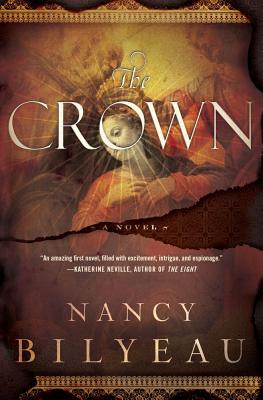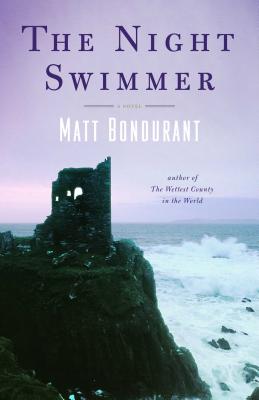The ruthless Stephen Gardiner, Bishop of Winchester, takes terrifying steps to force Joanna to agree to spy for him: to save her father’s life she must find an ancient relic—a crown so powerful, it may hold the ability to end the Reformation. Accompanied by two monks, Joanna returns home to Dartford Priory and searches in secret for this long-lost piece of history worn by the Saxon King Athelstan in 937 during the historic battle that first united Britain.
But Dartford Priory has become a dangerous place, and when more than one dead body is uncovered, Joanna departs with a sensitive young monk, Brother Edmund, to search elsewhere for the legendary crown. From royal castles with tapestry-filled rooms to Stonehenge to Malmesbury Abbey, the final resting place of King Athelstan, Joanna and Brother Edmund must hurry to find the crown if they want to keep Joanna’s father alive. At Malmesbury, secrets of the crown are revealed that bring to light the fates of the Black Prince, Richard the Lionhearted, and Katherine of Aragon’s first husband, Arthur. The crown’s intensity and strength are beyond the earthly realm and it must not fall into the wrong hands.
With Cromwell’s troops threatening to shutter her priory, bright and bold Joanna must now decide who she can trust with the secret of the crown so that she may save herself, her family, and her sacred way of life. This provocative story melds heart-stopping suspense with historical detail and brings to life the poignant dramas of women and men at a fascinating and critical moment in England’s past.
The Night Swimmer, Matt Bondurant’s utterly riveting modern gothic novel of marriage and belonging, confirms his gift for storytelling that transports and enthralls.
In a small town on the southern coast of Ireland, an isolated place only frequented by fishermen and the occasional group of bird-watchers, Fred and Elly Bulkington, newly arrived from Vermont having won a pub in a contest, encounter a wild, strange land shaped by the pounding storms of the North Atlantic, as well as the native resistance to strangers. As Fred revels in the life of a new pubowner, Elly takes the ferry out to a nearby island where anyone not born there is called a “blow-in.” To the disbelief of the locals, Elly devotes herself to open-water swimming, pushing herself to the limit and crossing unseen boundaries that drive her into the heart of the island’s troubles—the mysterious tragedy that shrouds its inhabitants and the dangerous feud between an enigmatic farmer and a powerful clan that has no use for outsiders.
The poignant unraveling of a marriage, the fierce beauty of the natural world, the mysterious power of Irish lore, and the gripping story of strangers in a strange land rife with intrigue and violence—The Night Swimmer is a novel of myriad enchantments by a writer of extraordinary talent.
At some point in nearly every marriage, a wife finds herself asking, What the @#!% is wrong with my husband?! In David Finch’s case, this turns out to be an apt question. Five years after he married Kristen, the love of his life, they learn that he has Asperger syndrome. The diagnosis explains David’s ever-growing list of quirks and compulsions, his lifelong propensity to quack and otherwise melt down in social exchanges, and his clinical-strength inflexibility. But it doesn’t make him any easier to live with.
Determined to change, David sets out to understand Asperger syndrome and learn to be a better husband— no easy task for a guy whose inability to express himself rivals his two-year-old daughter’s, who thinks his responsibility for laundry extends no further than throwing things in (or at) the hamper, and whose autism-spectrum condition makes seeing his wife’s point of view a near impossibility.
Nevertheless, David devotes himself to improving his marriage with an endearing yet hilarious zeal that involves excessive note-taking, performance reviews, and most of all, the Journal of Best Practices: a collection of hundreds of maxims and hard-won epiphanies that result from self-reflection both comic and painful. They include “Don’t change the radio station when she’s singing along,” “Apologies do not count when you shout them,” and “Be her friend, first and always.” Guided by the Journal of Best Practices, David transforms himself over the course of two years from the world’s most trying husband to the husband who tries the hardest, the husband he’d always meant to be.
Filled with humor and surprising wisdom, The Journal of Best Practices is a candid story of ruthless self-improvement, a unique window into living with an autism-spectrum condition, and proof that a true heart can conquer all.
Robert Barnard, the internationally acclaimed Diamond Dagger–winning crime writer, dissects family bonds at their best and worst in this stunning novel of suspense.
What an honor—to become trustee of an English stately home museum. Yorkshire Detective Inspector Charlie Peace’s wife, Felicity, is initially thrilled when she’s asked to join the board that oversees Walbrook Manor, an eighteenth-century mansion that’s now part of a charitable trust. She’s in for some surprises.
With its shabby salons and drafty hallways, Walbrook shows signs of the financial burden it caused its recent owners, members of the related Quarles and Fiennes families, known more for feuds than for affectionate familial ties. They are known also for shadowy intrigues, great and small, some of which may emerge now that Walbrook and its archives are open to the public. The revelations could be devastating . . . and dangerous.
Rupert Fiennes and Sir Stafford Quarles represent two lines of Walbrook’s lords of the manor. Rupert seems relieved to have relinquished the estate to charitable hands, while Sir Stafford clings with perhaps unseemly pride to his position as chairman of the Walbrook Manor Trust Board. A tentative peace reigns, but when the wreck of a car and the remains of a body turn up in a nearby lake, it soon becomes clear that one of Walbrook’s grimmest secrets may date to the years between the two world wars and may involve something much worse than mere malice.
With police resources focused on more timely cases, Charlie and Felicity are left to discover that old sins are never forgotten, that “family” means more than a slot on the ancestral tree, and that sometimes there can be a good reason for murder.
Suspenseful, witty, and, as always, superbly insightful, A Charitable Body shows acclaimed master of mystery Robert Barnard at his clever best.
What an honor—to become trustee of an English stately home museum. Yorkshire Detective Inspector Charlie Peace’s wife, Felicity, is initially thrilled when she’s asked to join the board that oversees Walbrook Manor, an eighteenth-century mansion that’s now part of a charitable trust. She’s in for some surprises.
With its shabby salons and drafty hallways, Walbrook shows signs of the financial burden it caused its recent owners, members of the related Quarles and Fiennes families, known more for feuds than for affectionate familial ties. They are known also for shadowy intrigues, great and small, some of which may emerge now that Walbrook and its archives are open to the public. The revelations could be devastating . . . and dangerous.
Rupert Fiennes and Sir Stafford Quarles represent two lines of Walbrook’s lords of the manor. Rupert seems relieved to have relinquished the estate to charitable hands, while Sir Stafford clings with perhaps unseemly pride to his position as chairman of the Walbrook Manor Trust Board. A tentative peace reigns, but when the wreck of a car and the remains of a body turn up in a nearby lake, it soon becomes clear that one of Walbrook’s grimmest secrets may date to the years between the two world wars and may involve something much worse than mere malice.
With police resources focused on more timely cases, Charlie and Felicity are left to discover that old sins are never forgotten, that “family” means more than a slot on the ancestral tree, and that sometimes there can be a good reason for murder.
Suspenseful, witty, and, as always, superbly insightful, A Charitable Body shows acclaimed master of mystery Robert Barnard at his clever best.




No comments:
Post a Comment